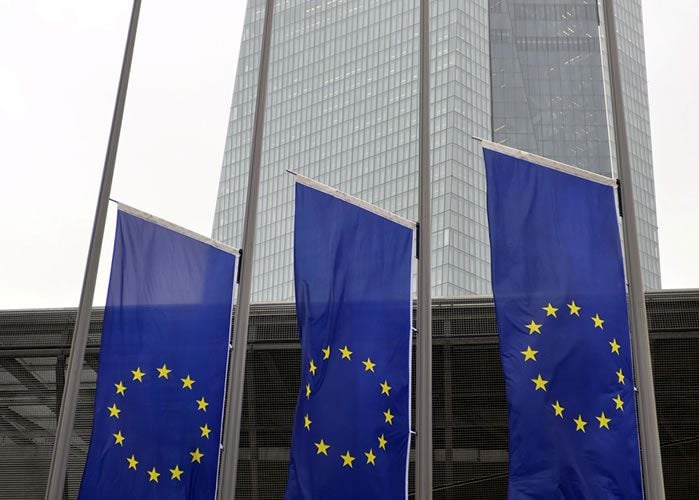Euro's Rally Higher Faces Headwinds on Reports of ECB Disunity over When to Turn off the Money Printing Press

Policy-makers at the European Central Bank in Frankfurt appear to be hiving off into two rival factions – those who wish for a speedy end to stimulus and those who want to delay. This could have implications for the Euro's outlook.
The news has upset market expectations that Mario Draghi and his crew will announce a reduction in their stimulus program in October, as it suggests the possibility this might not now be the case.
Recall, that it is expectations for this announcement that have been a major pillar underpinning the Euro's advance through 2017. Any disappointments would have obvious consequences for the continuation of the advance.
The ECB's stimulus programme - or Asset Purchase programme - involves the ECB in buying 60bn of bonds a month from Euro-zone financial institutions, thereby providing them and the wider economy with easy finance.
Questions on the ECB's next steps have been raised by a Reuters report which says there is disagreement within the central bank on whether or not to set an end-date for the asset purchase programme at the next meeting in October.
“These differences in views could keep open the option of an extension of the programme,” says Asmara Jamelah, an analyst with Intesa Sanpaolo.
The main reason for the split is the overly strong Euro, which would get stronger following hints of the stimulus programme being wound-up or tapered (i.e. gradually reduced).
Economists fear the strong Euro could hamper the region’s tenous recovery and the ‘wait’ camp in the ECB want to leave stimulus intact and keep the Euro cheap as precautionary measures.
Recent research from a senior economist seems to support a cautious approach to dismantaling the ECB’s ultra-easy policy package.
According to Benn Steil, who directs international economics at the Council of Foreign Relations in New York, ECB stimulus has only recently started to work for the whole region, not just the core, finding its way to all ‘four corners’ of the Eurozone.
If he is right then it would make no sense to end the policy just as it was starting to really provide benfits.
“Back in 2013, when the region was reeling from recent debt crises, the European Central Bank’s monetary policy wasn’t being reflected in lending rates in the region’s south,” says Bloomberg’s Carolynn Look in a report on the economist’s views.
Steil proves there is now a much closer relationship between the base lending rates set by the ECB and lending rates to companies and individuals in the real economy, indicating ECB policies are working.
“That relationship has finally been restored,” he notes, adding, “perhaps the strongest sign” that the crisis has ended, is the link between ECB rates and how much banks charge on new business loans is now, on average, “considerably stronger in the periphery than in the core.”
Whilst his view that this is a sign the “crisis has ended” may signal optimisim, it is unclear whether it is sufficient to justify a tapering of ECB policy accommodation.
Get up to 5% more foreign exchange by using a specialist provider by getting closer to the real market rate and avoid the gaping spreads charged by your bank for international payments. Learn more here.
Fed Meeting Could Impact on ECB Decisions
The Euro's appreciation through 2017 is also partly a function of US Dollar weakness, and for that we have Fed policy to thank.
Market’s appear to be reaching a consensus that there is a material risk the Federal Reserve will reign in their rate hike ambitions at their meeting today, and this will weaken the Dollar.
If this happens it will further support the outlook for the Euro as EUR/USD will move higher.
“An initial crucial test of the Euro’s strength will come this evening, with the outcome of the FOMC. If the Fed continues to envisage a third rate hike by the end of the year, the euro should retreat. Symmetrically, should the Fed rule out a third hike this year, the euro would rise further,” says Reuters Dhara Ranasinghe.
A further appreciation for the Euro will concern even further the faction in the ECB who already want to delay the ECB’s tapering ambitions.
Alternatively if the Fed remain hawkish and still seem to want to push ahead with a rate hike in 2017, the Euro could weaken agains the Dollar, which would increase the chances the ECB might go ahead and announce tapering at their October meeting.
“And any weakening in the single currency, up around 14 percent against the dollar this year, could encourage the European Central Bank to press ahead with plans to unwind its hefty stimulus scheme. A strong Euro, with its dampening effect on inflation, has clouded the outlook for the ECB tapering,” concludes Ranasinghe.




